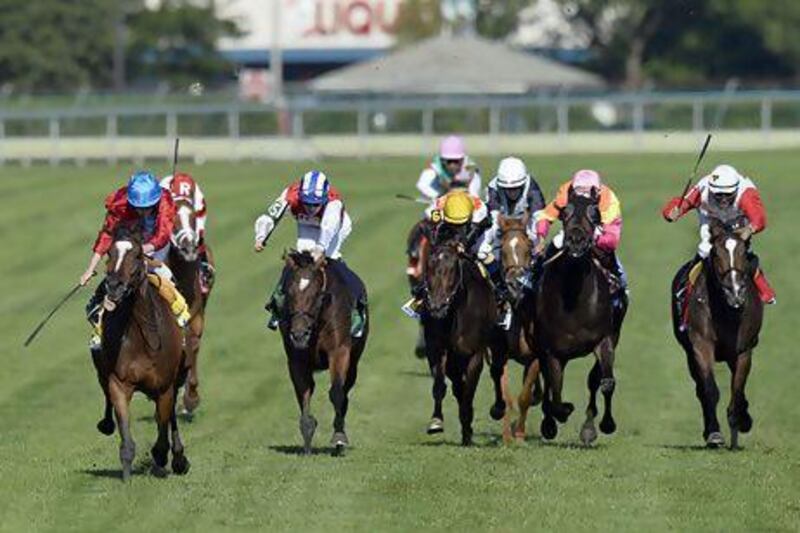Joshua Christian believes that the overturn of the progressive measure whereby juvenile horses were banned from receiving race-day medication at the Breeders' Cup will not have an adverse effect on foreign entries.
Christian is the director of racing and nominations for the Breeders' Cup and has been at York Racecourse this week in an effort to persuade trainers to race at the Santa Anita event in November.
Following a meeting at Del Mar on Friday night involving the Californian Horseracing Board and the Breeders' Cup the use of raceday medication will be permitted in all five juvenile races at America's international meeting in 2014.
This reverses the progressive decision made in 2012, whereby the administration of furosemide, an anti-bleeding drug better known under the former trade name of Lasix, was banned in the two-year-old programme at the two-day meeting. The Californian Horseracing Board confirmed that Lasix will continue to be banned during this year's meeting, held on November 1 and 2.
The administration of Lasix is banned in major racing countries, but is permitted throughout America.
Dank and Dandino were the last European runners to compete successfully in America, running at Arlington Park last weekend. Dank won the Beverley D Stakes and Dandino took the American St Leger at Arlington Park. Both horses were administered Lasix for the first time.
"From the trainers I have spoken to this week very few of them will have a problem sending over horses because of this," Christian told The National. "The odd trainer may have reservations because of this measure, but European trainers have used Lasix before and probably will continue to do so.
"Most people understand that the Breeders' Cup has to operate under the laws of different racing jurisdictions in America, all of which permit Lasix, wherever we stage the Breeders' Cup after Santa Anita in 2013."
Christian confirmed that the Breeders' Cup was committed to conducting an in-depth study into the effect of Lasix at this year's meeting but reports from America revealed that owners will have to opt in if their horses are to receive an endoscope to examine for exercise-induced bleeding.
Under current legislation, the Breeders' Cup cannot force the scoping of racehorses.
Last year there were only nine horses pre-entered as their first preference for the Breeders' Cup Juvenile and only six for the Breeders' Cup Juvenile Fillies, numbers which were down from 15 and 14 the previous year.
As a result the betting handle to those races was also down and it is easy to understand why the Californian Horseracing Board has taken this decision.
In response to the U-turn, the Breeders' Cup underlined its commitment to hosting their event under the same rules regarding race day medication as the rest of the world's major international meetings.
"We will continue to work constructively with stakeholders in the US and elsewhere, including potential host sites, racing commissions and horsemen's groups, toward that objective," the organisation said in a statement.
"There has been good progress toward uniformity on model rules in the US over the last several months and the Breeders' Cup has endorsed that effort.
"No racing jurisdiction in the US has established a policy eliminating the use of all race-day medications and none of our potential future host sites has been able to offer assurances that such an eventuality is likely in the near term."
Follow us
[ @SprtNationalUAE ]





